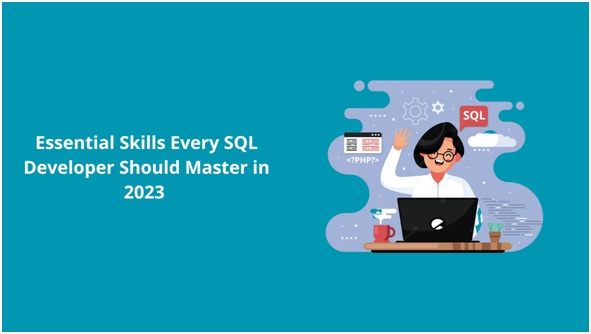For any SQL developer, staying current is essential. For experts in the sector, 2023 will bring fresh chances and problems. With data management systems constantly evolving and projects becoming more complicated, SQL developers must arm themselves with the necessary abilities to succeed. In-depth SQL Training becomes essential in this situation. In this blog, we will explore the fundamental competencies that any SQL Developer in 2023 has to possess, emphasising the need for SQL training along the way.
Table of contents
- Query Optimisation
- Database Design
- Security Measures
- Data Migration and ETL
- Advanced Joins and Subqueries
- Version Control
- Performance Monitoring and Tuning
- NoSQL Integration
- Conclusion
Query Optimisation
The foundation of SQL development is effective database querying. To make sure that their systems function properly and react quickly to user requests, SQL developers need to be experts in query optimisation techniques. It is essential to comprehend how indexes, joins, and aggregations affect query performance. Developers may learn to analyse execution plans and fine-tune queries for optimum performance and resource utilisation with the right SQL training.
Database Design
Every successful programme is built on a solid database. SQL developers need to be skilled at creating normalised databases that maximise data integrity while minimising redundancy. Understanding entity-relationship diagrams, data normalisation forms, and balancing normalisation and real-world usage needs are all part of this competence.
Security Measures
Cyber threats and data breaches are still a serious worry. Data security is a top priority for SQL developers when creating apps. It is crucial to master techniques for preventing SQL injection, user authentication, and encryption. Developers may learn to adopt best security practices and protect sensitive data using SQL training.
Data Migration and ETL
Data must frequently be moved across systems as firms expand or change for analysis. Extracting, Transforming, and Loading (ETL) procedures are a skill that SQL developers should possess. To do this effectively, data must be moved, cleaned, transformed, and loaded into a new system or data warehouse. A thorough SQL training programme may teach you about the methods and tools used in ETL and smooth data movement.
Advanced Joins and Subqueries
Basic joins are necessary, but a SQL developer’s skills may greatly improve by knowing complex join strategies and subqueries. Subqueries enable more intricate inquiries and can result in effective, beautiful answers. For dealing with a variety of situations, knowledge of several join types, including inner, outer, and self-joins, is essential.
Version Control
Software development requires collaboration, and protecting code integrity and fostering teamwork need version control. SQL developers should be knowledgeable about Git and other version control programs. The basics of version control and how to use them efficiently in database development can be covered in SQL training.
Performance Monitoring and Tuning
It’s crucial to keep track of and improve database performance. Utilising performance monitoring tools to locate bottlenecks and accelerate query execution is a skill that SQL developers should have. Through SQL training, developers may get the skills necessary to optimise speed, including knowledge of indexing techniques, caching, and memory management.
NoSQL Integration
Although SQL is necessary, NoSQL databases are becoming more popular for managing particular data types. It is important for SQL developers to understand NoSQL databases and when to use them over conventional relational databases. This information may be used to produce data solutions that are more flexible and efficient.
Conclusion
The position of an SQL developer in 2023 calls for a broad skill set that includes technical proficiency, security awareness, and technological agility. Developers who have received SQL training are more prepared to succeed in this constantly changing environment. Staying ahead as an SQL developer demands ongoing learning and skill development, whether it is in the areas of query optimisation, data migration, or integrating with cutting-edge technologies like NoSQL and the cloud. So, investing in thorough SQL training is an essential first step if you want to become an expert SQL developer by 2023 and beyond.

